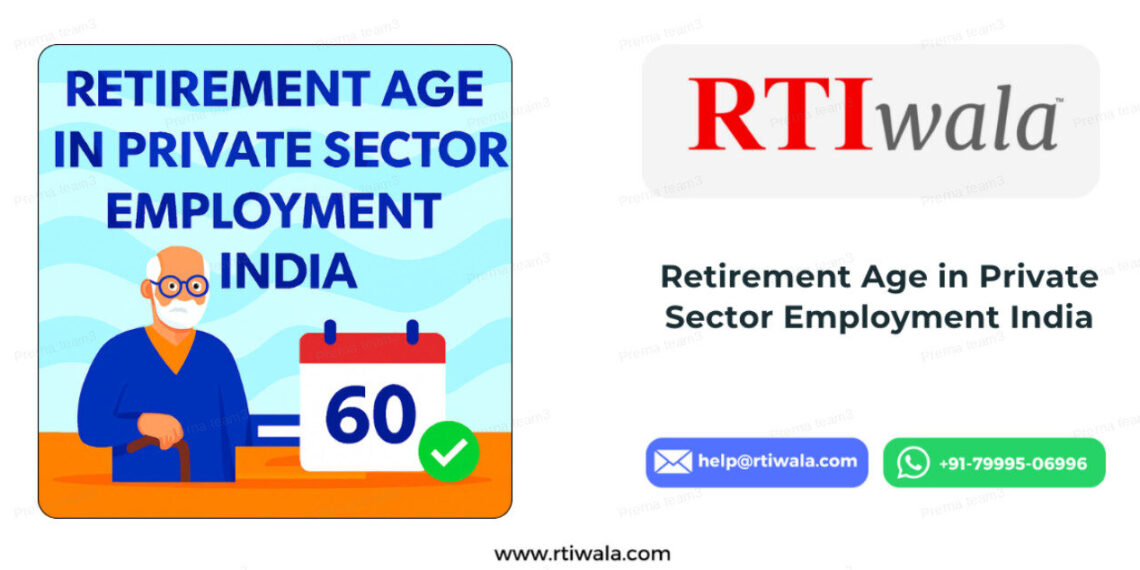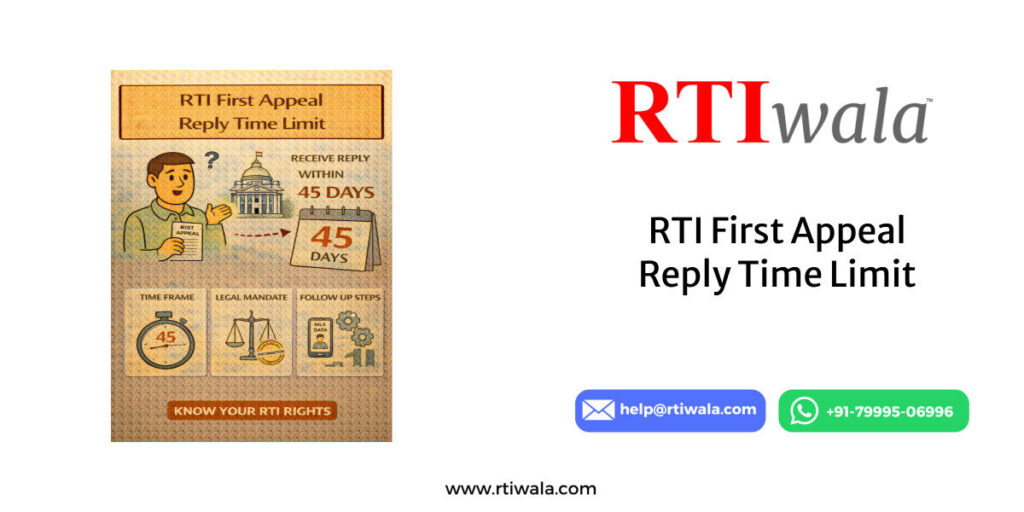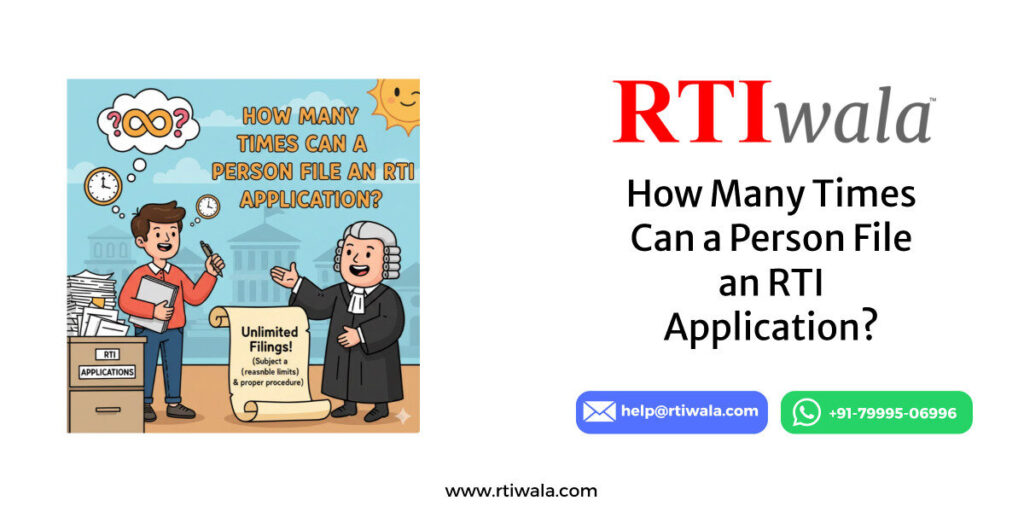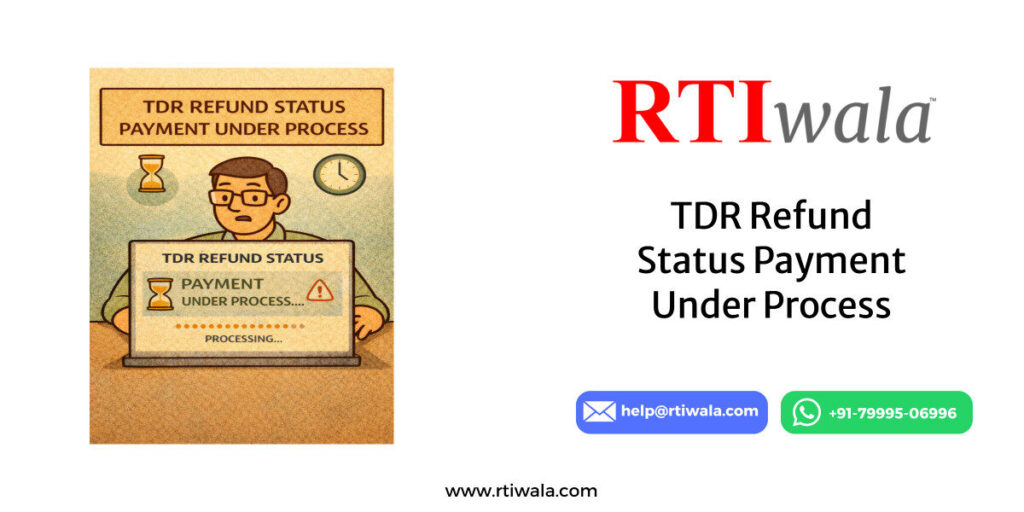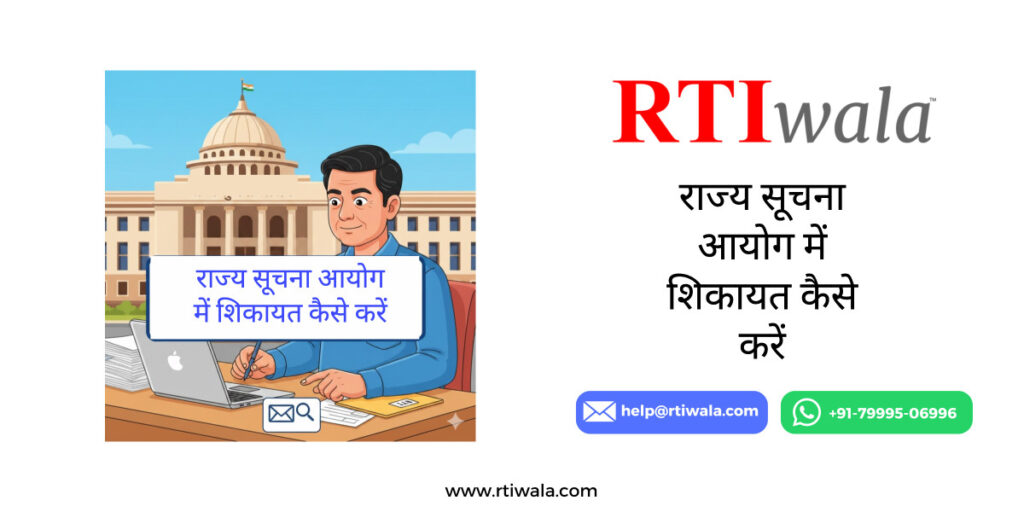Table Of Content
What Is the Retirement Age in Private Sector Employment in India?
Unlike government jobs where retirement age is fixed — 60 years for most employees — the private sector in India has no uniform retirement policy.
Each company decides its own retirement or “superannuation” age through employment contracts or HR policy.
Many private companies fix retirement between 58 and 65 years, but the rule isn’t universal. Employees working in multinationals, IT, banking, and manufacturing sectors often find their retirement linked to performance, management discretion, or contract renewal.
However, what if your company changes the retirement policy without informing you? That’s where Right to Information (RTI) can become your safeguard.
Is There Any Law Fixing Retirement Age in Private Companies?
No central law mandates a fixed retirement age in the private sector. However, labour laws and state-specific Shops and Establishments Acts require companies to define terms of employment clearly.
If your company did not share the policy, notice, or circular regarding retirement, you have a legal right to demand it under labour law transparency.
And if you are facing sudden termination, denial of gratuity, or forced retirement, you can file an RTI online to request:
- Copy of company’s retirement policy and employment rules
- Gratuity payment and PF settlement details
- Correspondence submitted to EPFO or Labour Commissioner regarding service discontinuation
The fear factor here is real — thousands of employees lose benefits every year simply because they never demanded documentary proof of their retirement policy.
How Employers Misuse Retirement Policy Loopholes
Some employers manipulate clauses in the HR policy to terminate employees early citing “organizational restructuring” or “non-performance.”
In several cases, employees discover that their employment record or retirement clause was never updated, leaving them ineligible for full benefits like gratuity or pension.
👉 Example:
A senior manager in Pune was asked to retire at 58, though his earlier contract mentioned 62. When he sought clarification, the HR department refused to share internal policy documents. Only after filing an RTI through RTIwala, he received copies of the circular and was able to claim his pending dues.
RTI for Employment and Service Records — The Game-Changer
Most employees believe RTI applies only to government offices, but that’s not entirely true.
If your private company is regulated by a government authority — like EPFO, ESIC, SEBI, RBI, or Ministry of Corporate Affairs (MCA) — then you can seek information via RTI from those authorities.
Through online RTI India, you can request information such as:
- Approval documents of your company under MCA
- PF and ESIC registration details
- Any official communication about your employment status
You can apply for RTI online using verified platforms like RTIwala, which ensures your application is properly drafted, filed, and followed up for response.
How to File RTI Online to Verify Your Employment Rights
Many employees lose cases because they fail to collect documentary proof in time. By learning how to file Right to Information applications smartly, you can protect yourself.
Here’s how to do it:
- Visit a reliable portal like RTIwala.com.
- Choose “File RTI Online” or “Anonymous RTI” depending on your comfort.
- Provide brief details of your issue — e.g., “Request for retirement policy or PF records.”
- RTIwala experts draft a professionally written RTI application ensuring no rejection.
- You’ll receive your official response directly from the concerned public authority.
If your RTI reply is unsatisfactory, you can even file a First Appeal through RTIwala Follow-up Add-on services.
How RTIwala Helps You Protect Your Career & Pension
RTIwala specializes in uncovering hidden employment details that most HR departments never share.
Using RTIwala’s professional services, you can get:
- Verified employment policy documents
- Retirement circulars and salary records from EPFO and labour authorities
- Proof of unpaid benefits or withheld gratuity
Many users choose RTIwala because it offers:
93% success rate in getting official replies
Affordable custom drafting & follow-up support
Secure and confidential handling of your information
Whether you’re still working or have already retired, don’t wait until your benefits vanish. File an RTI application today through RTIwala Online RTI Service to safeguard your rights.
FAQs on Retirement Age in Private Sector India
Q1. What is the average retirement age in private sector in India?
Most private companies set the retirement age between 58 and 65 years, but it varies depending on company policy.
Q2. Can a private company force an employee to retire early?
Not without proper documentation or HR policy reference. If forced, the employee can seek official proof through RTI from regulatory bodies like EPFO or MCA.
Q3. Can RTI be used against private companies?
Yes — if the company is regulated by a public authority. You can file RTI to government departments overseeing that company’s compliance.
Q4. What should I do if my employer withholds retirement benefits?
You can file online RTI to EPFO or Labour Ministry seeking details of your settlement, or contact RTIwala for expert drafting and appeal support.
Q5. How can RTIwala help me if my employer denies service records?
RTIwala’s team files targeted RTI applications with government authorities to retrieve your employment records, PF data, and official verification, ensuring you have legal proof.
Conclusion: Don’t Let Hidden Policies End Your Career Early
Many private employees lose years of hard work and savings because they never question retirement or termination policies.
Using RTI can expose the truth — but filing it correctly is the key.
RTIwala bridges that gap with professional drafting, follow-ups, and verified responses from authorities.
If you’re unsure about your company’s retirement age or policy changes, file RTI online today before it’s too late.
📞 Contact RTIwala: +91-7999-50-6996
🔗 Visit: www.rtiwala.com












































